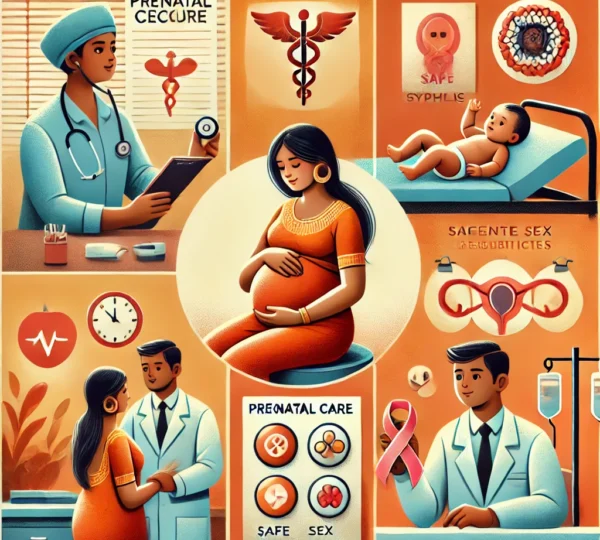Guarding Newborns: Understanding Congenital Syphilis for Indian Parents
What is Congenital Syphilis?
Congenital syphilis is a serious condition that affects newborns when their mothers have syphilis during pregnancy. For Indian parents, it’s crucial to understand the risks, symptoms, and preventive measures to protect their children’s health.
Understanding the Risks and Complications
Congenital syphilis can cause serious health problems for infants, including:
- Low Birth Weight: Babies born with congenital syphilis may be premature and have a low birth weight, leading to other health issues.
- Anaemia: A shortage of healthy red blood cells can affect the baby’s oxygen levels.
- Enlarged Liver and Spleen: This condition may cause the liver and spleen to enlarge.
- Jaundice: The baby’s skin and eyes may become yellow, a sign of liver problems.
- Skin Rashes: Rashes may appear on the palms and soles.
- Deformed Bones: The baby’s bones may have abnormalities due to congenital syphilis.
Recognizing Symptoms of Congenital Syphilis
Symptoms of congenital syphilis often appear within the first few weeks of life and may include:
- Fever
- Irritability
- Poor feeding
- Swelling of the liver and spleen
- Skin rashes
- Anaemia
- Nasal discharge
- Deformed bones
- Jaundice
- Developmental delays
Preventing Congenital Syphilis
The best way to protect your baby from congenital syphilis is through prevention:
- Prioritize Prenatal Care: Regular prenatal visits and syphilis testing are crucial. If a mother has syphilis, treatment can prevent the infection from affecting the baby.
- Practice Safe Sex: Using condoms and being in a monogamous relationship can help prevent syphilis and other sexually transmitted infections (STIs).
- Testing and Treatment: Pregnant women should get tested for syphilis during their first prenatal visit. If positive, antibiotics can treat the infection and reduce the risk to the baby.
- Testing at Birth: All babies should be tested for syphilis at birth, even if the mother received treatment during pregnancy.
- Follow-Up Care: Additional testing and treatment may be necessary for the baby if the mother had syphilis during pregnancy.
In Conclusion
Congenital syphilis is a preventable and treatable condition. Early detection and treatment are key to preventing serious health issues for your baby. By ensuring timely prenatal care, safe sex practices, and regular testing, Indian parents can give their newborns the best chance for a healthy start in life.
For More Information, Click here




